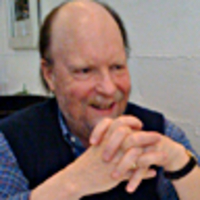
Alan Furst never envisioned this.
The rumpled 68-year-old author with a flyaway thatch of hair is seated on an elegant couch in the soaring lobby of Seattle’s Olympic Hotel, and he is answering questions about his life as a bestselling novelist. Ninety people who will turn out hours later to ask Furst more questions, faithful readers forgoing their kayaks, bikes, and barbecues on a perfect June evening in Seattle in favor of an author event inside a bookstore.
These Seattle moments are even sweeter for Furst since they take place in the Northwest city where he spent his formative writing years, back when his work was for ad agencies or the arts commission or a local weekly that had the former Fulbright fellow covering the pro-football fortunes of the Seattle Seahawks. Furst and his wife, Karen, left their Bainbridge Island home here in 1987 for Paris, their dream relocation to France fueled by the hefty check he had received as co-author of the memoir of Debbi Fields, shopping mall cookie maven.
“Spy novels are traditionally about lone wolves, but how many people actually live like that?”
Furst had it in mind to write a series of novels in a genre he was soon calling “historical espionage,” literary works set in 1930s Europe amid the gathering thunderclouds of fascism and war. But he had no illusions that these novels would be his ticket to fortune or fame. “I was going to be the best failed novelist in Paris,” Furst says. “That was certainly not the worst thing in the world that one could be.”
Night Soldiers in 1988 was Furst’s debut as a spy novelist, and others followed every few years, gathering some glowing reviews and a coterie of fervent fans who devoured his irresistible tales of ordinary people suddenly cast into extraordinary circumstances. Major popularity proved just as elusive as Furst had suspected (“I figured I would always be a candidate for man of the year in the virtue-is-its-own-reward category”). Everything finally changed with Kingdom of Shadows in 2001, when Furst’s sixth spy novel became a bestseller.

There are now more than 1 million copies of his novels in print, with editions around the globe in 17 languages. Every Furst novel since Kingdom of Shadows has been a bestseller including his 10th and latest novel, The Spies of Warsaw, now in paperback. Furst novels have become a Father’s Day tradition, with hardbacks released in even years, paperbacks in odd years, the literary alternative to the traditional dad’s gift tie. Furst now does national book tours for the hardbacks and even the paperbacks, book tours with luxe accommodations like the Olympic Hotel that leave Furst feeling “flattered and privileged.”
Worldwide popularity represented a seismic shift in Furst’s fortunes, but the changes in his work have been subtle. As he relates, “I’ve evolved in my writing to tell a more emotional story—my publisher, Random House, has urged that. Half of my readers are now women and they like things like erotic scenes and strong female heroines. My novels are now much more honest in ways that women understand—my characters often have families in my later novels. Spy novels are traditionally about lone wolves, but how many people actually live like that?”
What has not changed is Furst’s intent devotion to historical accuracy in his novels. He first selects the country to set a new novel (Greece will be next), then embarks on a period of assiduous historical research on that country’s history and politics through books, articles, letters and journals. By the time he is finished, Furst has virtually memorized that country’s entry from his 1951 edition of Encyclopedia Britannica. All of his spy plots, all of his characters evolve from his historical research. Furst is writing fiction, but he wants it based upon fact.
“People know accuracy when they read it; they can feel it,” Furst emphasizes. “So when characters in The Spies of Warsaw play tennis, readers can be sure the Poles did play a lot of tennis back then. They were not all peasants. I almost memorize the country’s Britannica entry because I have to know, really know what happened in that country during the previous 200-300 years. The characters in the novel know that history and it influences where those characters have been over the last 20 years, even if I don’t put that into the book itself. I have to construct a shadow biography of a country for each of my novels.”
All of his research into the 1930s has only increased Furst’s hatred for fascism and cruelty in all their forms. The descendant of Latvian Jews even imagines himself confronting Hitler not with a gun or at least a fist, as might be expected, but rather with pointed questions: “How could you do that to people? How could you do that to other humans?” Furst’s increasing anger about “what governments do” even influenced a burst of activism in the 2008 election. As he says, “I gave Obama more money than I can afford. My thinking was: If the Republicans steal another election, I will have myself to blame. It was time to put my money where my mouth is.”
Furst’s natural disposition, though, is ebullient. He is that elusive rare breed, the genuinely happy writer, generous toward others who have helped him (especially his mother, and his wife through their “25-year love affair,” despite being separated for the last 18 months). Furst is also pleased by where his career his taken him, including 10 years in Paris and 15 years now in the tony Hamptons on Long Island.
But, mostly, Furst is stunned and thankful to have so many readers. That is why he will devote many an evening hour to answering every reader email he receives through www.alanfurst.net. There will be a glass of vodka near his keyboard, plus jazz streamed over the Internet from KPLU-FM, the beloved Tacoma, Washington, public-radio station he discovered in Seattle. These ingredients all produce the best of moods for Furst, who has no plans to change his rewarding life: “I’ll probably write until I die at my typewriter and someone finds me there a week later.”
Plus: Check out Book Beast, for more news on hot titles and authors and excerpts from the latest books.
John Douglas Marshall was the longtime book critic for the Seattle Post-Intelligencer until it ceased publication in March.




